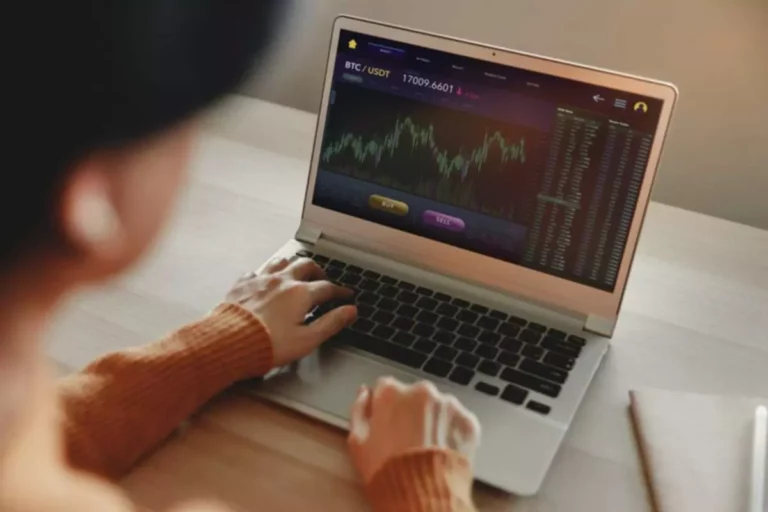When there’s a liquid market, even substantial transactions have a minimal effect on prices, minimizing price manipulation and promoting fair market conditions. Liquidity ensures the smooth operation of financial markets by facilitating the quick and hassle-free conversion of assets into cash. For instance, stocks and shares can be bought and sold quickly via online brokerages. This accessibility allows investors to execute transactions promptly, contributing to market efficiency. Higher liquidity reduces the risk of price manipulation and provides a more accurate representation of an asset’s market value.
Major cryptocurrencies have soared over the past week, led by a 9% rise in the price of Bitcoin (BTC -0.77%). Over the long term, you will likely earn better returns by putting your money into stocks or other assets. Many investors use CDs to reallocate their portfolios as they transition from growth to preservation strategies because of the guaranteed returns and shorter timelines. They take funds from more risky investments and use what is crypto liquidity them in income-generating strategies like a CD ladder, where CDs mature at regular intervals, leading to a regular source of income. The value of crypto assets can increase or decrease, and you could lose all or a substantial amount of your purchase price. When assessing a crypto asset, it’s essential for you to do your research and due diligence to make the best possible judgement, as any purchases shall be your sole responsibility.
An increase in the number of trusted exchanges and ATMs for a cryptocurrency encourages more people to trade the coin. Also, the more it is used as a medium of exchange, the more liquid a coin becomes. Even though it has its drawbacks, it helps carry out many DeFi activities like trading, crypto yield farming, lending, arbitrage trading, and profit-sharing. In addition, you can also get passive income by being a liquidity provider.
Without liquidity, orders can’t be matched between buyers and sellers, and a crypto exchange would go out of business. In the DeFi context, liquidity risk refers to the potential for insufficient liquidity or a lack of available funds in a particular DeFi protocol or liquidity pool. This can result in difficulties in executing trades, high slippage, or the inability to withdraw funds from a protocol. High liquidity ensures that investors can easily buy or sell shares at or near the current market price. It also reduces the risk of not finding a buyer or seller to execute a trade, which can be particularly important for large trades or in volatile market conditions. Liquidity holds crucial importance in the financial world as it determines how easily assets, such as stocks, bonds, or real estate, can be converted into cash.
That’s fair enough and will also mean millions of retail investors will suddenly have access to several seamless avenues to diversify their portfolios into the budding cryptocurrency asset class. To be clear, that doesn’t mean the rise in all cryptocurrencies will continue indefinitely over the long term. Imagine a trader provides liquidity to a token pair pool that consists of equal amounts of ETH and a newly launched altcoin. Initially, the value of both of the paired assets is equal, and they contribute an equal value to each.
However, it is crucial to carefully assess the risks and rewards before engaging in liquidity provision. When the prices of assets in a liquidity pool experience high levels of volatility, the potential for IL increases. This is because the relative value of the assets within the pool can drastically fluctuate, leading to a higher likelihood of IL. Yield farming is the process of earning passive returns on cryptocurrency assets by lending them out to DeFi protocols. Investors are incentivized to deposit their digital assets for timely yields or profits such as interest, governance tokens, and other rewards. Since the existence of a DeFi protocol depends on its core developers, investors put all their faith in the integrity of these few individuals when making a deposit.

In other words, buyers tend to trade when the “ask price” is favorable to their account, and sellers will release shares when the “bid price” is high. When an asset can be easily converted into cash, largely in accordance with its market price, it is said to have liquidity. Below are three benefits https://www.xcritical.in/ that liquidity pools have over traditional market-making systems. The system, which has been used for many years, allows buyers and sellers to make more informed decisions. The order book reveals imbalances in the market, which traders can use to get insight into short-term market trends.
This may not be the case for an altcoin with a smaller market capitalization. The market makers for these futures need to manage their own risk by buying and selling physical cryptocurrencies, thereby deepening the overall market liquidity. IL calculators are available to help estimate the potential loss a user may incur when providing liquidity to a specific pool. They take into account various factors, such as the initial asset prices, the pool composition, and the price changes over time.
Are you curious to learn how crypto can help you pass your funded account challenge and boost your funded profits? Shares of large companies that trade on the stock exchange tend to be highly liquid due to active trading and broad investor interest. Liquidity in the stock market refers to the ease with which a particular stock can be bought or sold in the market without significantly affecting its price. It also measures how quickly and efficiently investors can convert their shares into cash or buy shares without causing significant price fluctuations.
- Keeping tokens in line with market prices as more providers add funds to the pool is important.
- Usually, a crypto liquidity provider receives LP tokens in proportion to the amount of liquidity they have supplied to the pool.
- When there’s a liquid market, even substantial transactions have a minimal effect on prices, minimizing price manipulation and promoting fair market conditions.
- Nothing contained herein shall constitute a solicitation, recommendation, endorsement, or offer by Crypto.com to invest, buy, or sell any coins, tokens, or other crypto assets.
- Below, you will find both the general definition and how it applies to crypto.
A crypto liquidity pool allows you to lock your tokens in a pool of cryptocurrencies where they are put to use, and you, in turn, earn passive income. It also has many benefits for crypto and decentralized finance (DeFi) networks as they shift away from how centralized crypto exchanges operate. But if that price for the pool is not in line with the global crypto marketplace, the liquidity provider can lose its capital. Keeping tokens in line with market prices as more providers add funds to the pool is important.
During this period of extreme volatility, you could see a big loss due to impermanent loss. Every time a buyer buys the TK, the price of the TK will increase because the demand for our token has increased. Liquidity pools are also used in field farming, blockchain gaming, and so much more. Liquidity providers are usually rewarded with fees, which can be a form of passive income.
However, over time, the new altcoin experiences a surge in demand, and its price increases compared to ETH. As a result, the proportion of the trader’s assets in the pool shifts, and they end up with more of the altcoin and less of ETH. Decentralized networks and digital asset pools can be challenging to navigate because very little information about their projects is made public. This can breed corruption, mistrust, and confusion among investors who wish to find reliable options to deposit their money. Still, a certain level of uncertainty is inevitable for all stakeholders who contribute to a liquidity pool.

When a user supplies a pool with liquidity, the provider is often rewarded with liquidity provider (LP) tokens. LP tokens can be valuable assets in their own right, and can be used throughout the DeFi ecosystem in various capacities. A liquidity pool is a collection of digital assets such as cryptocurrencies or virtual tokens locked up in a smart contract to facilitate transactions on a DEX.
